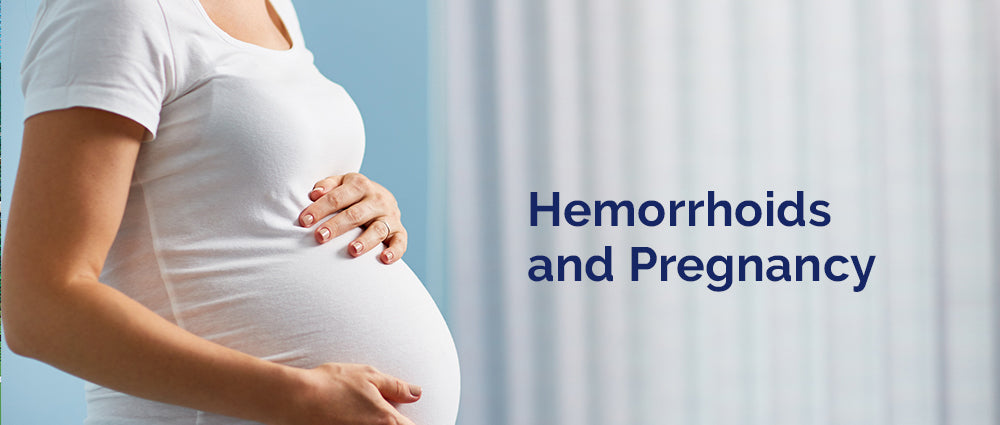Pregnancy is a time of joy and excitement, but it also comes with its fair share of challenges. One common issue many pregnant women face is hemorrhoids. Hemorrhoids, or swollen veins in the rectum and anus, can cause significant discomfort, including itching, pain, and bleeding. Understanding how to safely manage and relieve hemorrhoids during pregnancy is essential for maintaining comfort and health.
Understanding Hemorrhoids in Pregnancy
Causes of Hemorrhoids During Pregnancy
Hemorrhoids are common during pregnancy due to several factors:
- Increased Blood Volume: Pregnancy increases the blood volume in your body, leading to the enlargement of veins.
- Hormonal Changes: Hormones like progesterone relax the walls of your veins, making them more susceptible to swelling.
- Uterus Pressure: As your baby grows, the uterus puts pressure on the veins in the pelvic area, contributing to hemorrhoid formation.
- Constipation: Many pregnant women experience constipation, which can lead to straining during bowel movements and exacerbate hemorrhoids.
Symptoms of Hemorrhoids During Pregnancy
Hemorrhoid symptoms can vary but typically include:
- Itching and Irritation: Hemorrhoids can cause significant itching around the anus.
- Pain and Discomfort: Swollen veins can be painful, especially during bowel movements.
- Bleeding: You might notice small amounts of blood on the toilet paper or in the toilet bowl.
- Swelling: A lump near the anus, which can be tender and uncomfortable.
Safe Methods for Hemorrhoid Relief During Pregnancy
1. Dietary Changes
Maintaining a healthy diet is crucial for preventing and managing hemorrhoids during pregnancy.
- Increase Fiber Intake: Eating plenty of fiber-rich foods such as fruits, vegetables, whole grains, and legumes can help soften stools and reduce straining during bowel movements.
- Stay Hydrated: Drinking plenty of water helps keep stools soft and reduces the risk of constipation.
- Avoid Processed Foods: Minimize intake of processed foods that are low in fiber and can contribute to constipation.
2. Exercise Regularly
Regular physical activity can improve digestion and reduce the risk of constipation, thus helping to prevent hemorrhoids.
- Gentle Exercises: Walking, swimming, and prenatal yoga are excellent choices for maintaining regular bowel movements.
- Pelvic Floor Exercises: Kegel exercises strengthen the pelvic floor muscles, improving circulation and reducing the risk of hemorrhoids.
3. Proper Bathroom Habits
Adopting healthy bathroom habits can significantly reduce hemorrhoid symptoms and prevent their occurrence.
- Avoid Straining: Do not force bowel movements; let them happen naturally.
- Respond to Urges Promptly: Go to the bathroom as soon as you feel the urge to have a bowel movement to prevent constipation. Afterwards gently clean the area for proper hygiene.
- Use a Squatting Position: Elevate your feet using a small stool to mimic a squatting position, which can help ease bowel movements.
4. Topical Treatments
Several topical treatments can provide relief from hemorrhoid symptoms.
- Witch Hazel: Apply witch hazel pads to the affected area to reduce inflammation and soothe irritation.
- Aloe Vera Gel: Aloe vera has anti-inflammatory properties that can relieve itching and discomfort.
- Cold Compresses: Applying cold compresses to the area can help reduce swelling and numb pain.
5. Warm Baths
Taking warm baths can soothe hemorrhoid symptoms and promote healing.
- Sitz Baths: A sitz bath involves sitting in a few inches of warm water. Doing this several times a day can reduce swelling and relieve pain.
- Full Warm Baths: Adding Epsom salt to a warm bath can enhance the soothing effects.
6. Over-the-Counter Medications
Some over-the-counter medications are safe to use during pregnancy, but it’s essential to consult your healthcare provider first.
- Hydrocortisone Cream: This can reduce itching and inflammation.
- Lidocaine Cream: Provides pain relief by numbing the affected area.
- Stool Softeners: Safe stool softeners can help prevent constipation and reduce straining.
7. Consult Your Healthcare Provider
If your hemorrhoid symptoms are severe or persistent, it's important to consult your healthcare provider. They can recommend safe treatments and interventions to manage your condition effectively.
- Prescription Medications: In some cases, your doctor may prescribe stronger medications that are safe to use during pregnancy.
- Medical Procedures: For severe hemorrhoids, procedures such as rubber band ligation or sclerotherapy may be considered, though these are typically reserved for postpartum treatment.
8. Alternative Therapies
Some alternative therapies can complement traditional treatments for hemorrhoid relief.
- Acupuncture: This traditional Chinese medicine technique can help reduce pain and improve circulation.
- Chiropractic Care: Proper spinal alignment can relieve pressure on the pelvic area, potentially reducing hemorrhoid symptoms.
- Herbal Remedies: Certain herbs like witch hazel, butcher’s broom, and horse chestnut can be used in teas or topical applications, but always consult your healthcare provider before using any herbal remedies.
Preventing Hemorrhoids During Pregnancy
1. Maintain a Healthy Weight
Gaining excessive weight during pregnancy can increase pressure on the pelvic veins. Following your healthcare provider’s guidelines for healthy weight gain can help minimize the risk of hemorrhoids.
2. Avoid Prolonged Sitting or Standing
Alternating between sitting, standing, and lying down can reduce pressure on the veins in your pelvic area. Taking breaks and changing positions regularly can help prevent hemorrhoids.
3. Wear Comfortable Clothing
Avoid tight clothing and underwear, as they can restrict blood flow and increase the risk of hemorrhoids. Opt for loose, breathable garments that promote circulation.
Deduction
Hemorrhoids are a common but manageable issue during pregnancy. By understanding the causes and implementing safe, effective relief methods, you can significantly reduce discomfort and improve your quality of life during this special time. Dietary changes, regular exercise, proper bathroom habits, and topical treatments can all contribute to alleviating hemorrhoid symptoms. Always consult your healthcare provider before starting any new treatment to ensure it is safe for you and your baby.
Pregnancy should be a joyful experience, and managing hemorrhoids effectively can help you stay comfortable and healthy. By taking proactive steps and utilizing safe methods for relief, you can focus on enjoying your pregnancy and preparing for the arrival of your little one.

